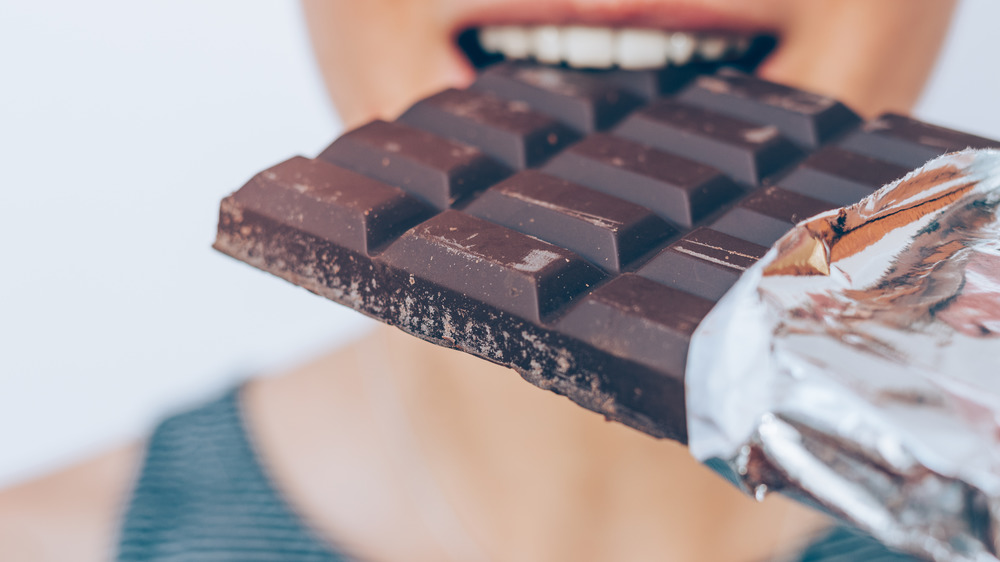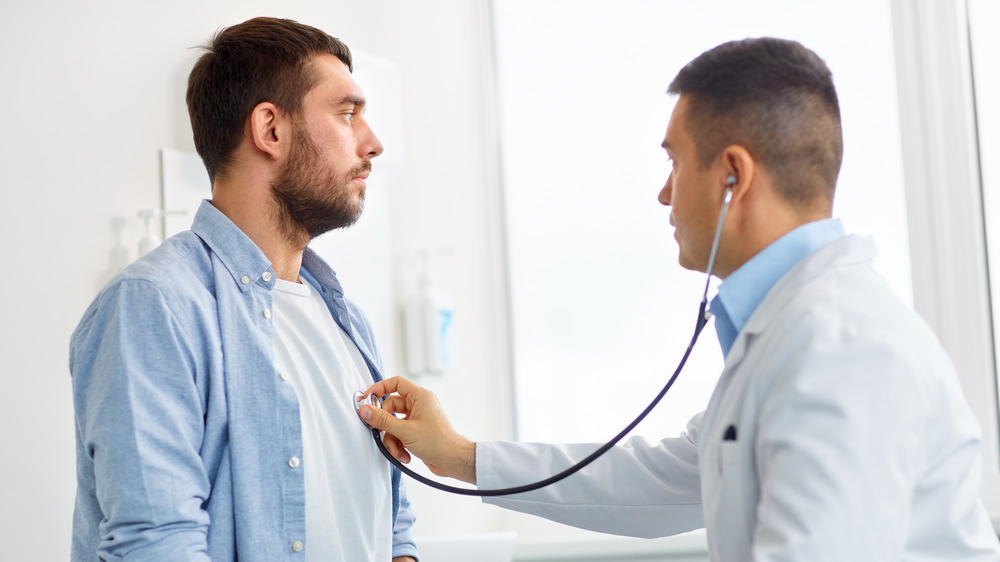The Hidden Danger Of Eating Caffeinated Food
Many of us can't start our day without strong, hot coffee to help wake us up. If we find ourselves hitting a mid-afternoon slump, we may even reach for another cup of joe. And for those people who don't like the taste of coffee, some new products on the market even promise to give you that same hit of caffeine in the form of other types of drinks or even food. But is eating your caffeine really a good idea?
Caffeine is a stimulant found in plants that can temporarily increase your alertness by interacting with chemicals in your brain (via Harvard Health Publishing). Caffeine has been used for thousands of years to boost energy. One study showed that caffeine only takes about 20 minutes to be absorbed by the stomach into the blood, and the effects are noticeable shortly after that (via Journal of Food Science). Today, around 90% of North American adults have a daily dose of caffeine (via Healthline). It's most commonly consumed as tea, coffee, or soft drinks.
Watch out for these side effects
While the FDA calls for adults to consume no more than 400 mg of caffeine per day — or about four cups of coffee — the rise of energy drinks and foods that contain caffeine have made it trickier to know exactly how much you're actually getting (via FDA). Add to that warnings for children, pregnant people, and those who take certain medications, and the risks of taking in too much caffeine grow quickly. For example, one bar of chocolate that's currently on the market has 150 mg of caffeine, compared to about 85 mg in a standard cup of coffee (via HuffPost). These types of products are being marketed as a more natural alternative to caffeine pills and energy drinks. However, eating caffeinated foods, especially in addition to drinking coffee or energy drinks, can produce unpleasant and sometimes dangerous results.
Side effects of consuming too much caffeine include a temporary rise in blood pressure and heart rate. In some cases, it can even cause a disruption to your normal heart rhythm, known as atrial fibrillation. High caffeine consumption, no matter what the source, can also lead to irritability, headaches, insomnia, and a host of other side effects (via Mayo Clinic). If you choose to eat caffeinated foods, always pay attention to the labels and try to stay within the amount of caffeine recommended for your particular situation.


